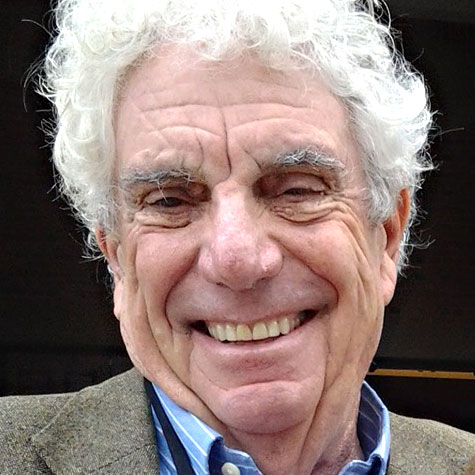When Susan Kent was a child in Westchester County, N.Y., she read her way through the public library children’s section and then headed over to the adult books.
When the librarian told Kent they were for adults only, she called in her father. “My father came to the library and said, ‘She can read anything she wants,’ ” Kent recalled.
The little Jewish girl from suburban New York grew up to be a librarian. In fact, Kent, now an international library consultant, was Los Angeles’ city librarian from 1995 to 2004, presiding over the construction and renovation of 62 branch libraries, which now adorn neighborhoods throughout the city. She then became director and chief executive of the New York Public Library branch libraries, where she served for three years before starting her consulting firm in Los Angeles.
Kent was instrumental in making the Los Angeles public library system one of the best in the nation. But now the system is endangered by the Los Angeles city fiscal crisis. Measure L on the March 8 ballot will decide whether the city’s libraries thrive or continue to decline.
I called Kent to talk about the proposal. It would increase the portion of property tax revenues given to the library system over the next four years. Money for the libraries would be increased by $130 million in four years. Because it’s a shift of funds to the library and would not increase property taxes, it requires only a majority vote for approval. Opponents, mainly the police union, point out this could mean less for other city departments, such as the Police Department. Even so, Police Chief Charlie Beck is a supporter.
As we chatted, I asked Kent about how her Jewish upbringing shaped her love of books, her career and now her advocacy for Measure L.
“I was raised as a secular Jew,” she said. “I have no religious education. My parents were not observant. But I think the tradition of the book, of education, of service, was always emphasized. … We would discuss current events, books, ideas at dinner. It was part of the family conversation. It was always expected that I would go to college, and being an educated person meant reading.”
Presiding over the expansion of the libraries, she aimed to strengthen the institution’s ties to Los Angeles’ many neighborhoods. The goal, she said, was “to make sure there was equal access to the library in every community. There wasn’t more, or less, library access in Watts than there was in Pacific Palisades.”
A visit to two of the branches last week showed how the system has been strained by the cutbacks. In addition to reducing open days from seven to five, library hours have been reduced three times in the past year.
In the sparkling Chinatown branch, filled with adults and youngsters reading and searching for books and on computers, a sign behind the computers told part of the story: “Sunday and Monday Closed. Tuesday-Thursday 12:30 p.m.-8 p.m. Wednesday, Friday, Saturday 10 a.m.-5:30 p.m.” The same limited hours awaited visitors to the attractively renovated branch on Overland Avenue, near the Santa Monica Freeway, where I dropped in at 2:30 p.m. after my visit to the Chinatown library. All but two of the reading tables were in use, many occupied by young people. Youngsters and adults were at every computer terminal.
Library use is heavy from the San Fernando Valley to the harbor. Angelenos visited the downtown Central Library and the 72 branches 16 million times last year, down by a million from pre-cutback days, and borrowed 18 million books, DVDs and other items.
They used the library online 155 million times. “Lines for computers are phenomenal,” Kent said. “Think of L.A. You don’t have school libraries. After-school programs are getting less and less funding, so where do kids go? They go to the library.”
For many years, the library system has been guaranteed a portion of city property tax revenue. It has been .0175 percent, which most recently gave the libraries $76 million a year.
None of this $76 million was used for certain operational costs, such as maintenance, security cops, landscaping, pensions and other matters. These costs were paid from the city’s big general fund. But when the fiscal crisis shrunk the general fund, Mayor Antonio Villaraigosa and the city council told the library to pay for its cops, gardeners and pensions from its $76 million. That sharply reduced the amount of money available for books, librarians, DVDs, computer operations and other uses strictly associated with library work.
Measure L would increase the library’s share of the property tax enough to pay for librarians and security cops, books and landscaping. Monday service would be restored this year. Two evenings would be added the following year, and eventually libraries would be open on Sundays. More money would be available for book purchases, now down to $6.5 million annually — the lowest in years.
I’m a heavy library user. When I was writing for the Los Angeles Times, I visited branches in every part of the city and saw how much good they did. I have endorsed Measure L, as has my wife, Nancy, along with other writers more famous than we.
“It has been a community resource, a cultural resource, and that is why seeing what has happened is so disturbing to me,” Kent said.
I agree.
Bill Boyarsky is a columnist for The Jewish Journal, Truthdig and L.A. Observed, and the author of “Inventing L.A.: The Chandlers and Their Times” (Angel City Press).























 More news and opinions than at a Shabbat dinner, right in your inbox.
More news and opinions than at a Shabbat dinner, right in your inbox.